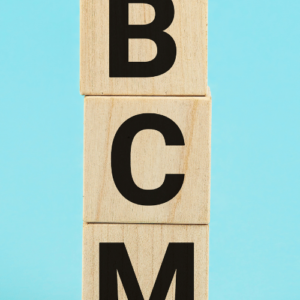Cost Control Techniques
Original price was: $89.00.$49.00Current price is: $49.00.
This course equips participants with the tools and techniques to manage and control costs effectively, helping businesses increase profitability and achieve long-term financial stability.
Course Overview: Cost Control Techniques
The “Cost Control Techniques” course is designed to provide participants with a thorough understanding of how to manage and reduce costs effectively within an organization. This course focuses on the various strategies and tools used to control operational costs, improve budgeting processes, and increase profitability without compromising quality or performance. It covers key areas such as cost allocation, budgeting, variance analysis, and performance measurement.
Participants will learn how to identify and analyze cost drivers, use different costing methods, and implement techniques to monitor and control costs. This course is ideal for business owners, managers, financial professionals, and anyone involved in budgeting and financial planning.
Learning Outcomes:
By the end of this course, participants will be able to:
- Understand Cost Structures: Identify fixed, variable, and semi-variable costs within an organization.
- Implement Budgeting Techniques: Develop and manage budgets effectively using various budgeting methods (e.g., zero-based budgeting, activity-based budgeting).
- Conduct Variance Analysis: Analyze variances between actual and budgeted costs to identify areas for improvement.
- Apply Costing Methods: Use techniques such as activity-based costing, standard costing, and marginal costing to allocate and manage costs efficiently.
- Monitor and Control Costs: Implement cost control systems to track expenditures and ensure they align with organizational goals.
- Improve Financial Performance: Apply cost control techniques to increase operational efficiency and overall financial performance.
Long-Term Benefits:
- Better Financial Management: Participants will learn how to develop cost control systems that optimize resources and minimize waste.
- Enhanced Profitability: By effectively managing costs, organizations can increase profitability while maintaining quality.
- Stronger Budgetary Control: Gain the skills to create accurate budgets and improve financial forecasting.
- Improved Decision-Making: Understand how cost control impacts decision-making in areas such as pricing, resource allocation, and investment.
- Career Growth: Mastering cost control techniques is essential for professionals in finance, accounting, operations, and management roles, opening doors for career advancement.
Course Outline:
Module 1: Introduction to Cost Control
- Definition and importance of cost control
- Overview of cost structures: fixed, variable, and semi-variable costs
- The role of cost control in financial planning and decision-making
Module 2: Budgeting Techniques
- Overview of budgeting processes
- Types of budgeting: zero-based, incremental, and activity-based budgeting
- How to create a realistic and effective budget
- Budget monitoring and reporting
Module 3: Costing Methods
- Introduction to different costing methods
- Activity-based costing (ABC)
- Marginal costing and break-even analysis
- Standard costing
Module 4: Variance Analysis
- Understanding the concept of variance analysis
- Types of variances: cost, sales, and efficiency variances
- How to calculate and interpret variances
- Identifying root causes of variances and corrective actions
Module 5: Cost Allocation and Overhead Management
- Cost allocation principles
- Direct and indirect costs
- Allocation of overheads to products and services
- Strategies to manage overhead costs
Module 6: Performance Measurement and Benchmarking
- Key performance indicators (KPIs) for cost control
- Using benchmarking to improve cost control strategies
- Performance evaluation techniques: efficiency and effectiveness metrics
Module 7: Implementing Cost Control Systems
- Developing cost control systems for monitoring expenses
- Tools and software for cost control
- The role of internal audits in cost control
- Setting up internal controls to prevent cost overruns
Module 8: Cost Control in Production and Operations
- Techniques for controlling production and operational costs
- Lean manufacturing and just-in-time (JIT) principles
- Cost control in service industries
- Outsourcing vs. insourcing: cost considerations
Module 9: Strategic Cost Management
- Aligning cost control with long-term business strategy
- Cost reduction vs. value creation
- Pricing strategies and their relationship with cost control
- Continuous improvement in cost management
Module 10: Case Studies and Practical Applications
- Real-world examples of successful cost control implementation
- Case study analysis: cost control in different industries
- Final project: developing a cost control plan for an organization
Module 11: Conclusion and Final Assessment
- Course recap and key takeaways
- Final project presentation
- Certification of completion and next steps




